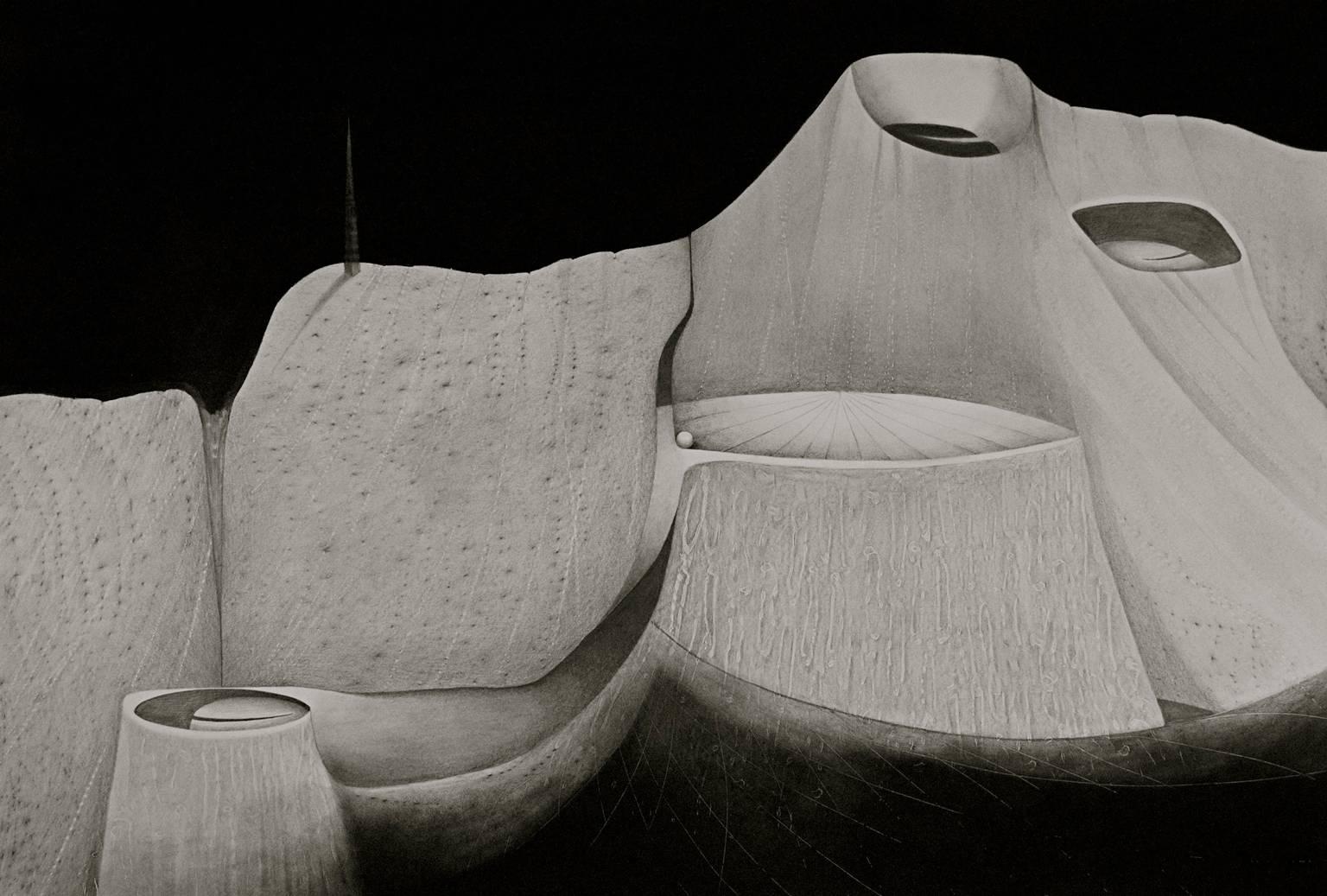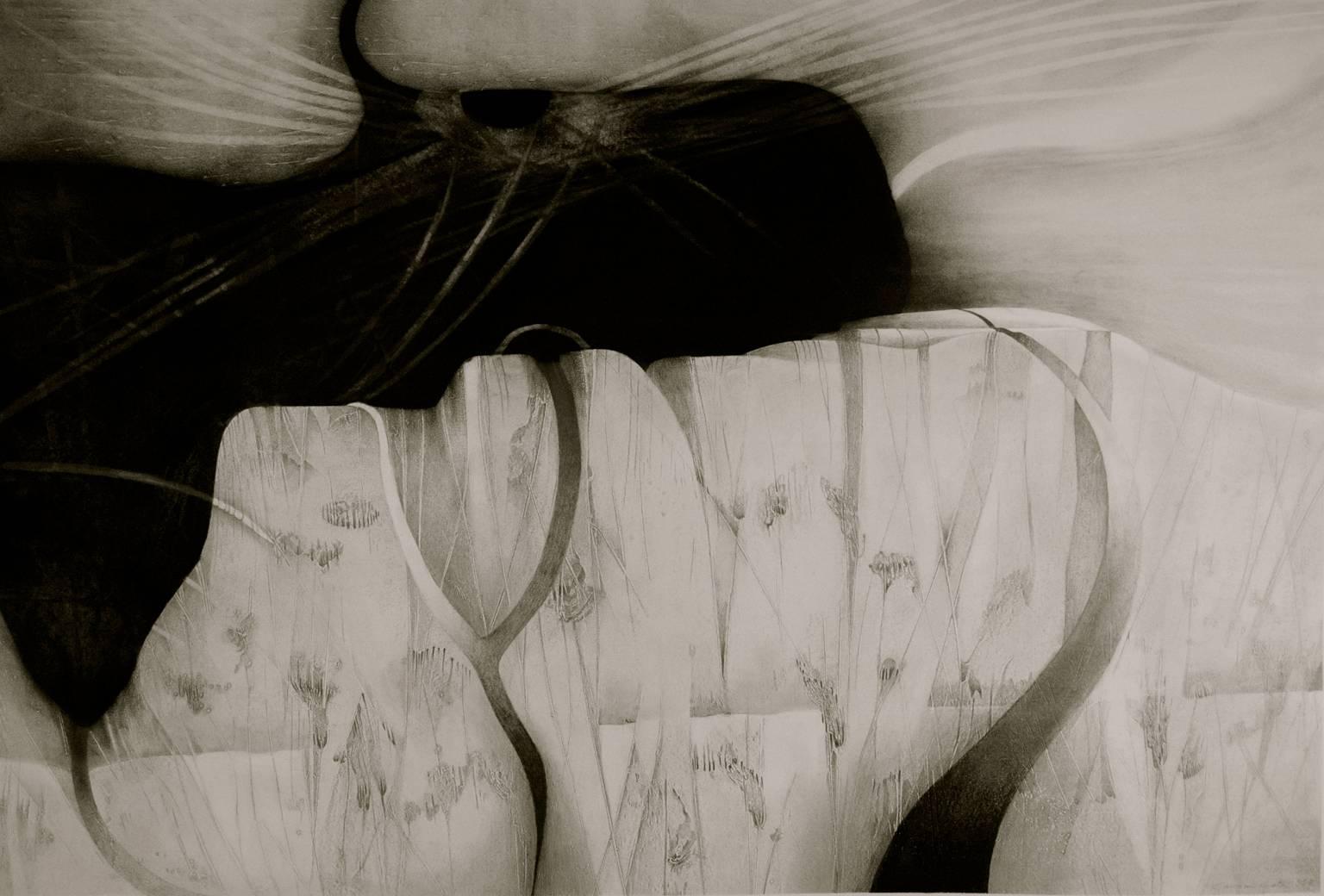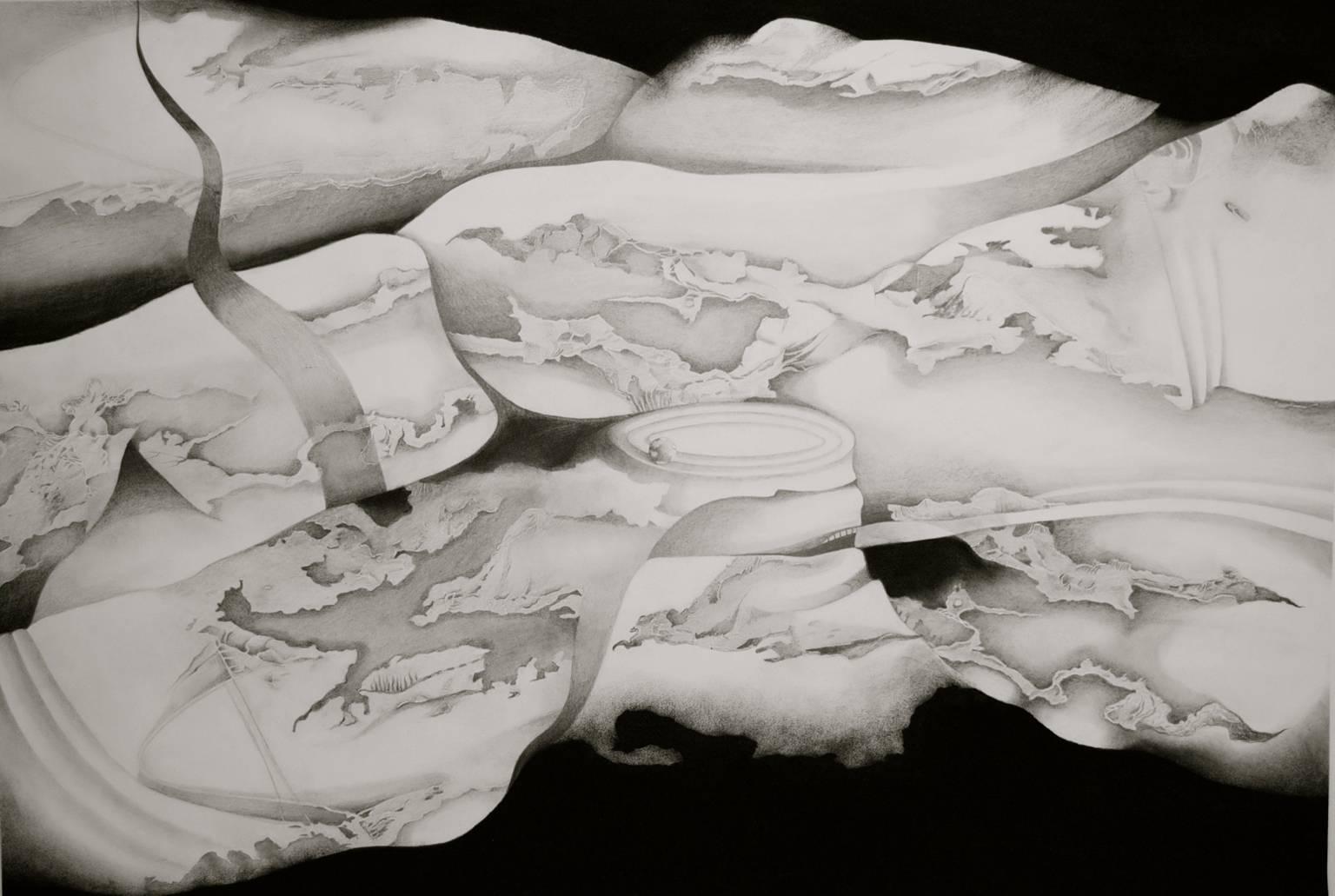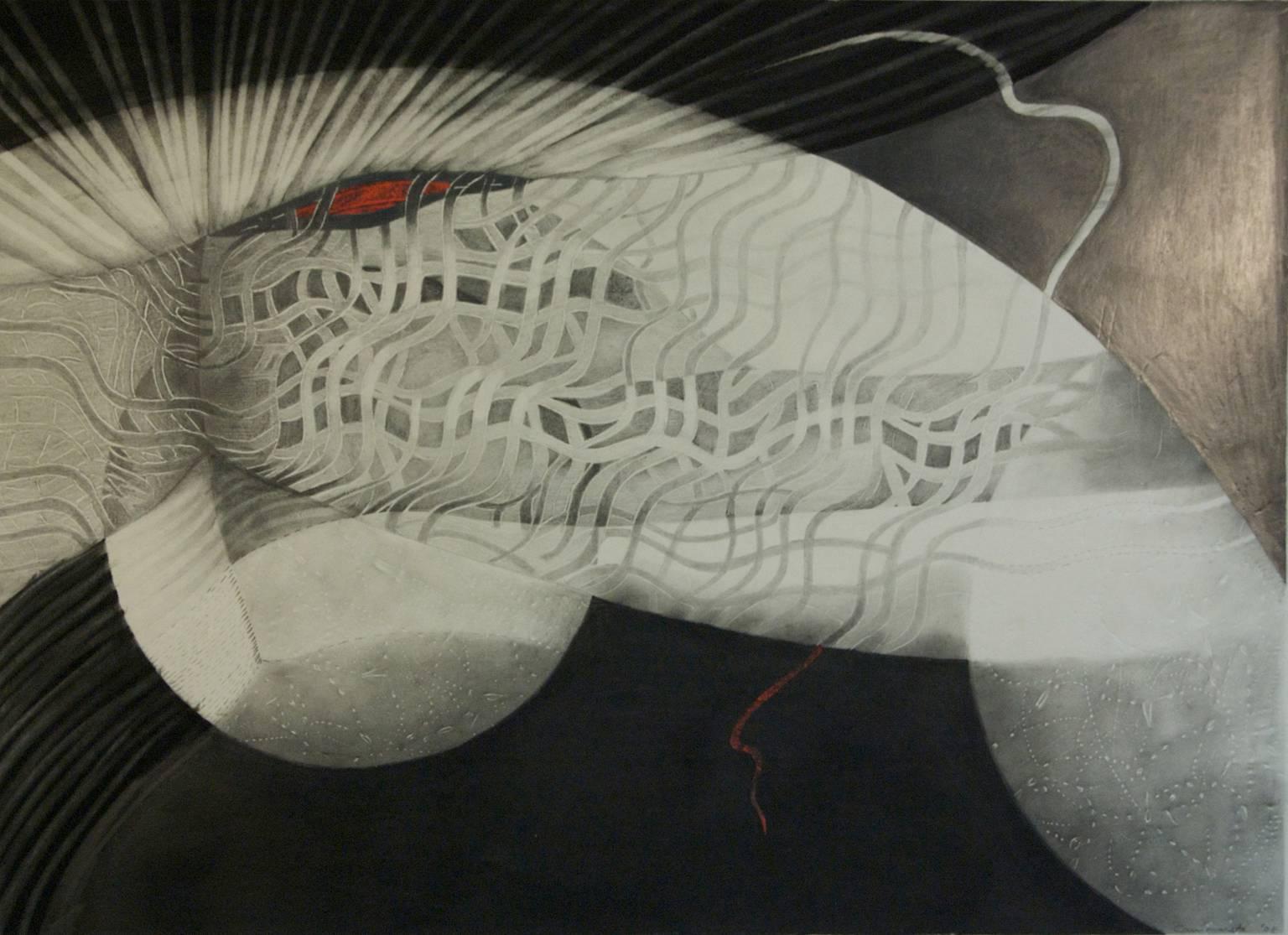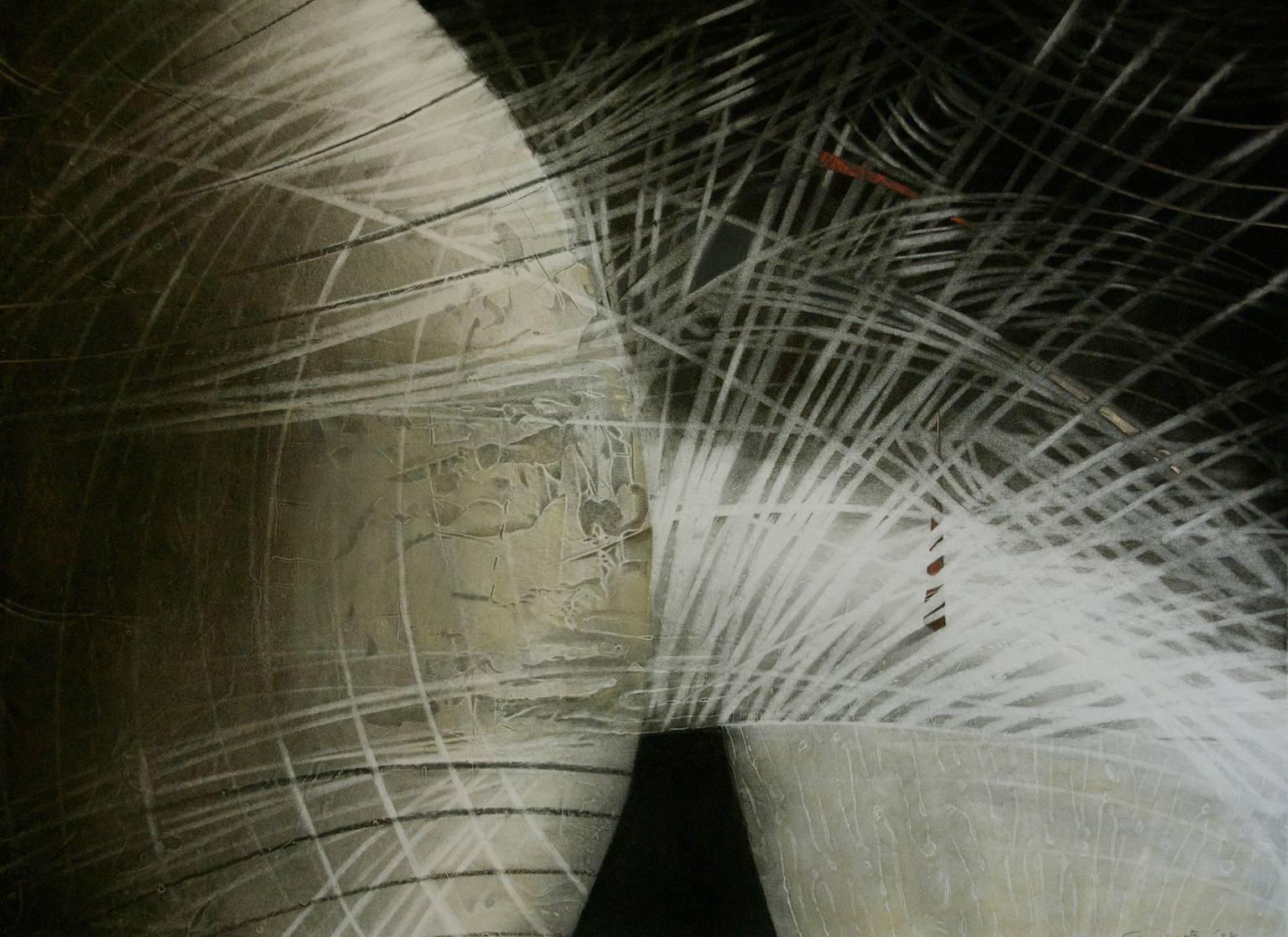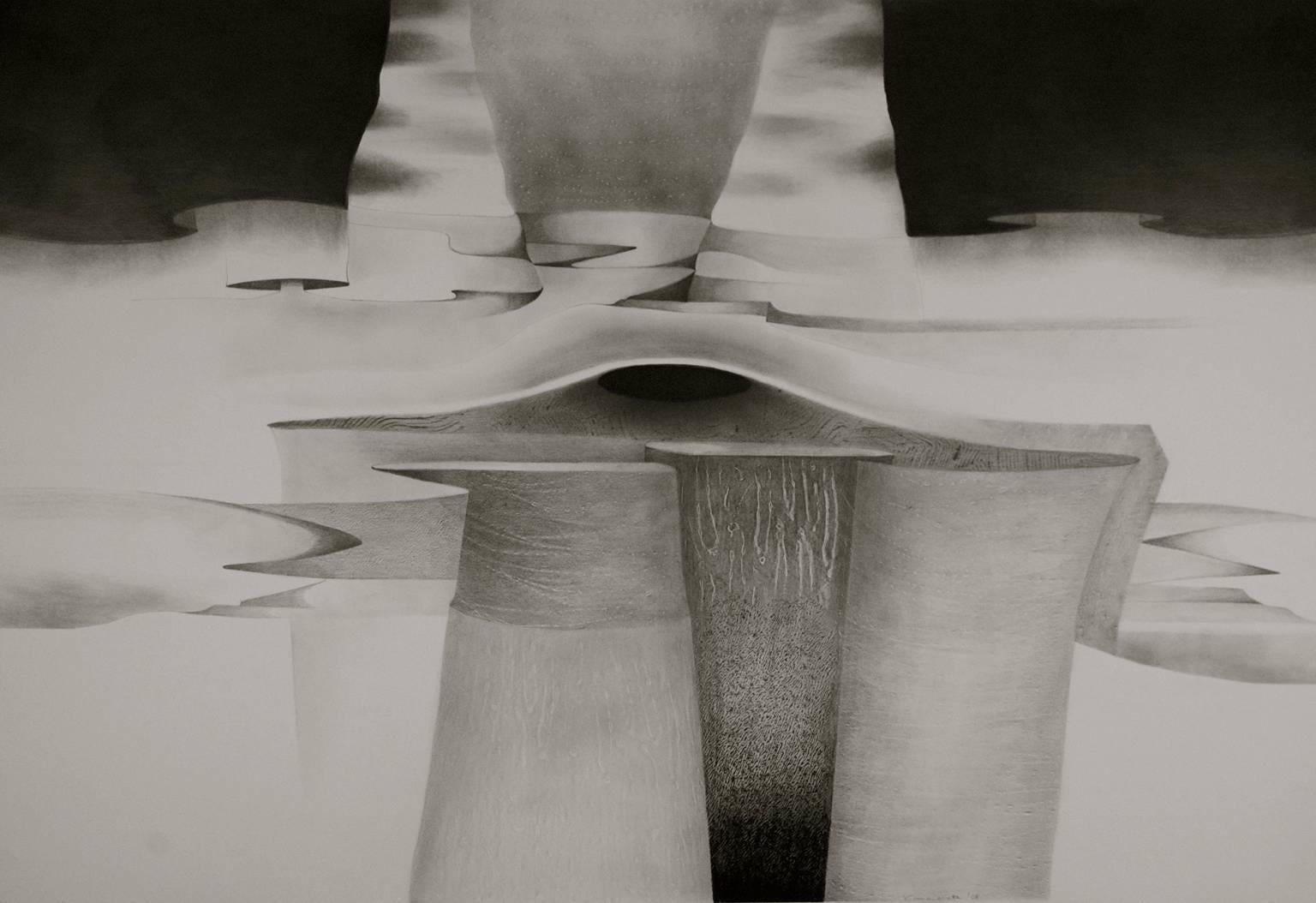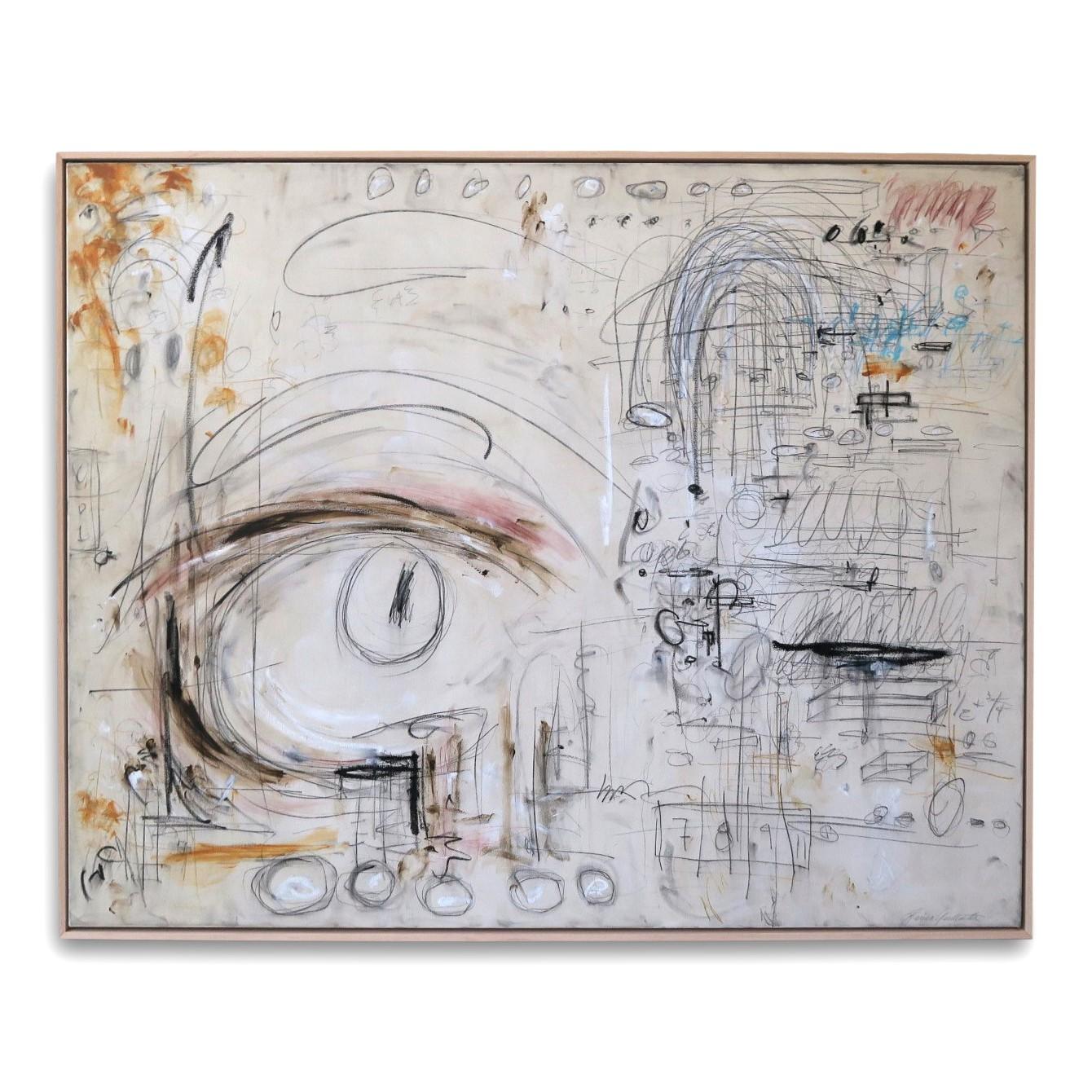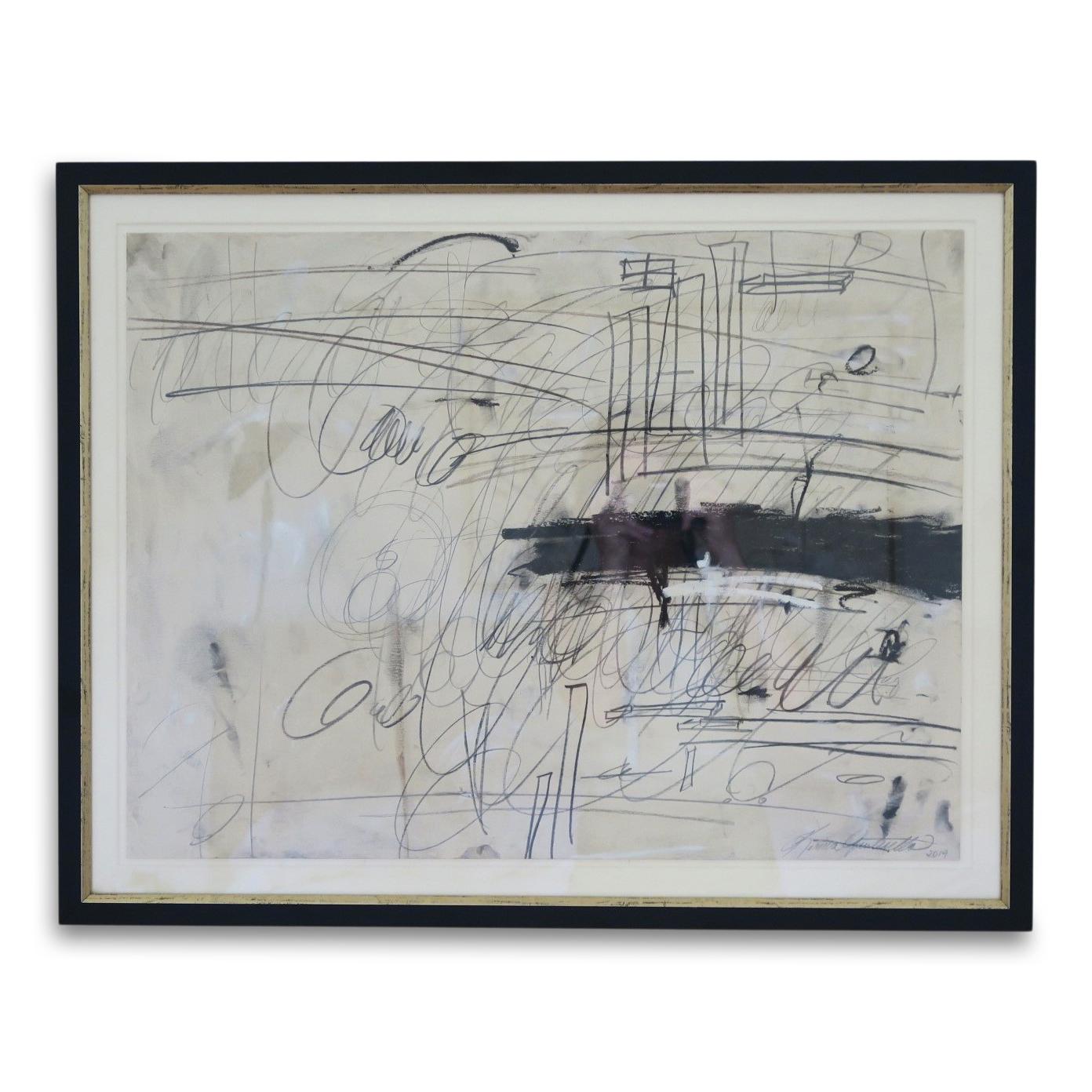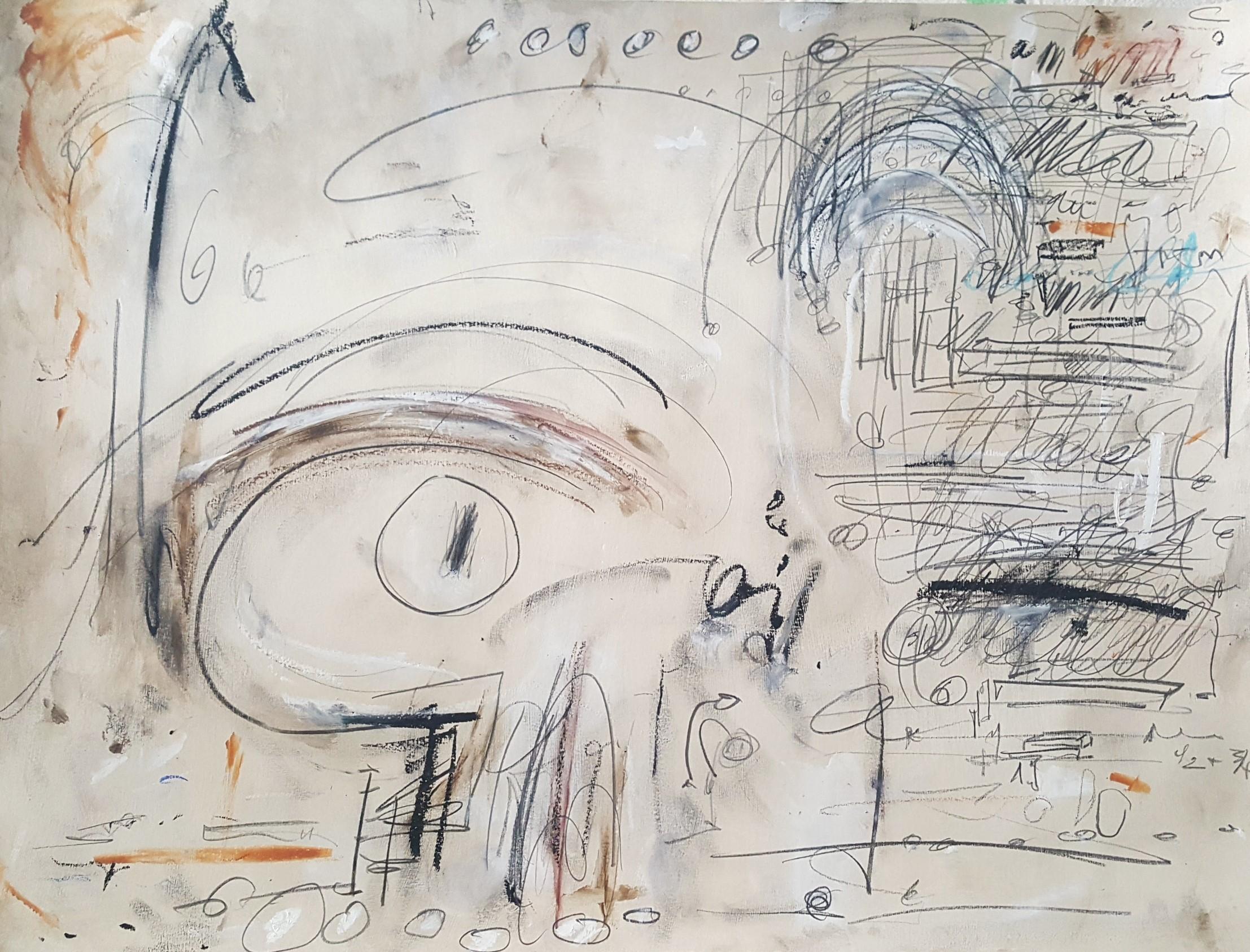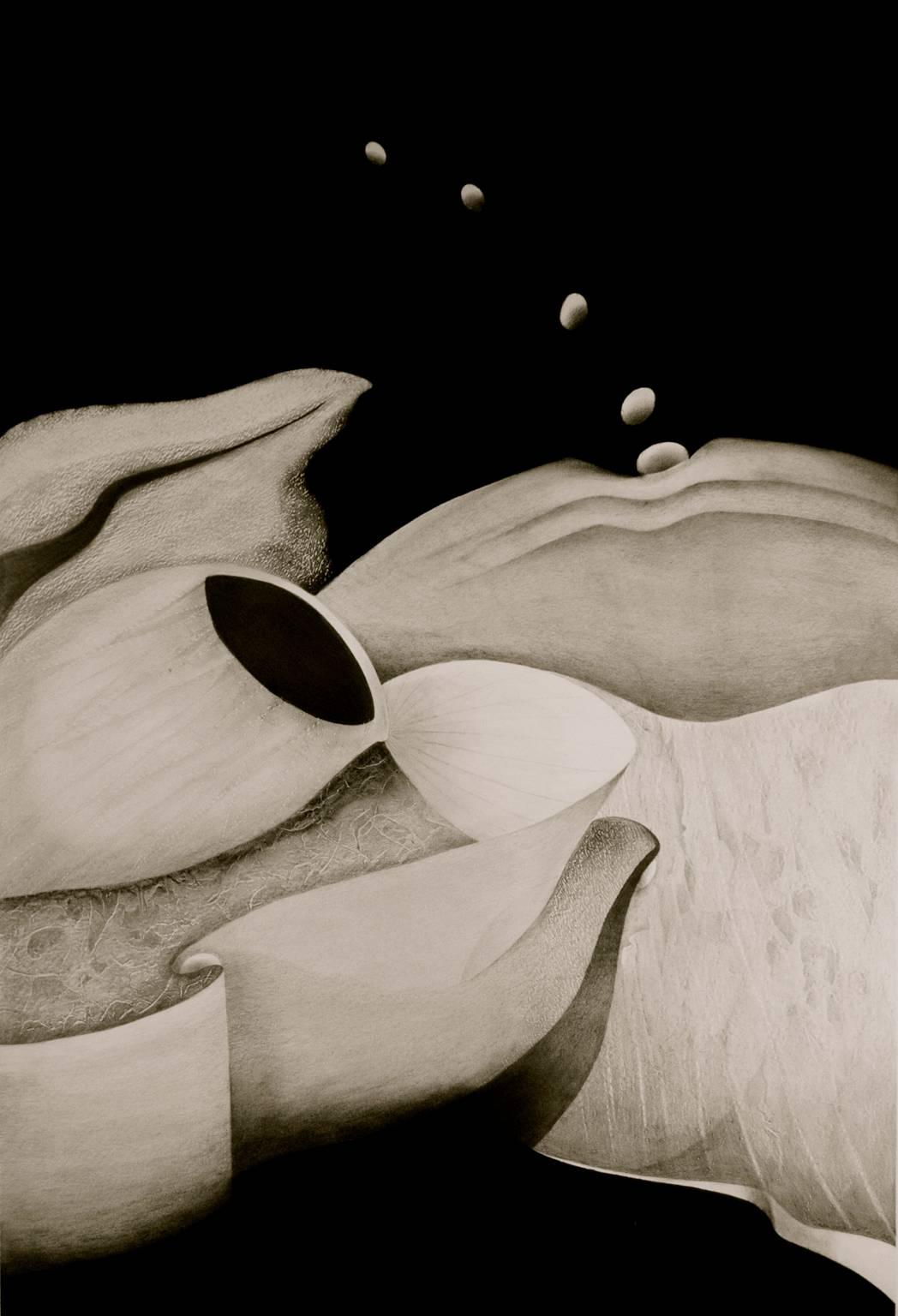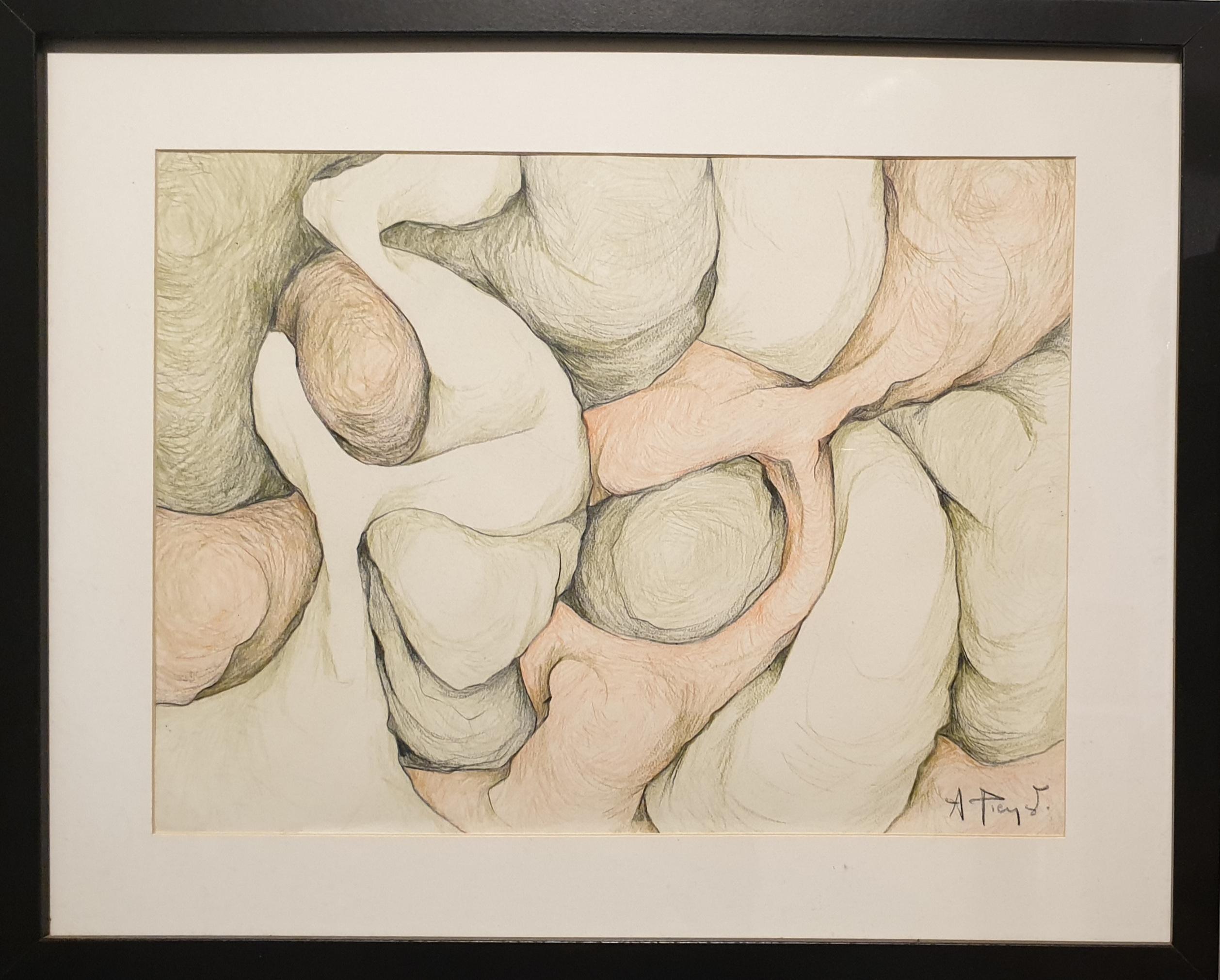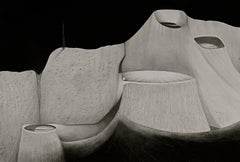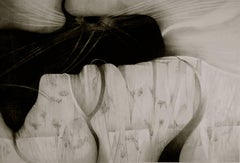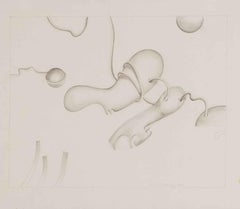
Fantasy
1 of 4
Yankel GinzburgFantasy1986
1986
About the Item
- Creator:Yankel Ginzburg (1945, Kazakhstani)
- Creation Year:1986
- Dimensions:Height: 20 in (50.8 cm)Width: 24 in (60.96 cm)
- Medium:
- Movement & Style:
- Period:
- Condition:
- Gallery Location:Greenwich, CT
- Reference Number:1stDibs: LU144427242032
You May Also Like
- Abstract Cubist Charcoal Drawing of a Standing WomanBy Valery Kleveroy (Klever)Located in Houston, TXBlack and white portrait of a woman done in a style that combines abstraction and cubism, much like the work of Fernand Leger. Signed and dated in lower left corner. Artist Biography: Valery Kleverov was born in Engels, Russian Federation, Soviet Union June 28, 1939 the son of a fighter test pilot in the Soviet Air Force. He exhibited an independent, rebellious, and highly artistic temperament from a young age. Conscription into the Red Army at the standard age of (18) was first and last straw in the young artist’s battle with the State, he lasted only a few months before making an unauthorized parachute jump over a forest to go permanently AWOL. After 3 weeks hiding in the woods, he eventually made his way to Leningrad, dropped his first name and the “ov” from the end of his name and began his life as the underground artist known as “KLEVER”. He fell in with a close-knit group of young anti-authoritarian rebels who eventually became known to the world as the “Non-Conformists”, a small gang of free thinkers mainly from Leningrad and Moscow who rebelled against State control of artistic expression and of free thought. In the Soviet Union, not only religion was outlawed - art, literature, music and dance were all subject to heavy censorship and state oversight. Among paintings historical, religious, abstract, anti-Soviet and erotic subjects were all against the law. From 1966 to 1977 Klever made a reputation for himself as one of the non-conformists most overtly critical of the Soviet state. Many of his paintings from this period can be described as nothing less than heroic- they are truly remarkable visual essays on the evils of the national security/surveillance state, propaganda and manipulation of cultural symbols, suppression of artistic and religious freedom, revisionist history, and unfilled promises for the future. All of them were painted stored and exhibited not only at great risk to the artist and his associates, but also to anybody who sought to view them. In spite of the secrecy, the KGB discovered the existence of these pieces and began to follow Klever’s every move. There were surprise visits to his studio, harassment wherever he went, friends and family being questioned all a direct result of his determination to express himself artistically against Soviet control. From this time forward Klever had an exhibit which was open for viewing at all times inside the apartment of Bob Kashilohov as part of a network which paralleled the Samizdat network for sharing of forbidden literature. Klever was arrested for his participation in the most important non- conformist exhibitions which took place during his time there. These were the Bulldozer Exhibition in Moscow, 1974, (so named because the KGB bulldozed the exhibition and destroyed much of the work) and the Nevski Dom exhibition in Leningrad, 1975. These exhibitions represented some of the early cracks in the foundations of the Soviet state’s control over the population’s basic aspirations for economic, personal and creative freedom that ended with collapse in 1991. Repercussions of the Bulldozer exhibition were that some of the painters were arrested or even killed. Approximately 70 artists were arrested, including Klever. Media outcry in the west allowed most of the artists to be released within a week. Two weeks later another exhibition was allowed to proceed and became known as “Half Day of Freedom” in the Soviet Union. The Nevsky exhibition caused a huge sensation and was a watershed moment in the cultural history of the Soviet Union. People lined up for 30 blocks long over the course of the two week exhibition to see the forbidden works. Klever showed a large collection of explicit anti-Soviet paintings...Category
20th Century Abstract Abstract Drawings and Watercolors
MaterialsCharcoal, Carbon Pencil
- "Excursion 4" - Horizontal black & white abstract drawing (pencil on paper).By Kathleen CammarataLocated in Miami, FLCharcoal and pencil on paper. Note: The painting shown on the wall may not be proportional to the room size.Category
Early 2000s Abstract Abstract Drawings and Watercolors
MaterialsCarbon Pencil, Paper, Charcoal, Pencil
- "Excursion 3" - Horizontal black & white abstract drawing (pencil on paper).By Kathleen CammarataLocated in Miami, FLPencil and Charcoal on paper. Note: The painting shown on the wall may not be proportional to the room size.Category
Early 2000s Abstract Abstract Drawings and Watercolors
MaterialsCarbon Pencil, Paper, Charcoal, Pencil
- "Excursion 14" - Black & White abstract drawing (pencil and charcoal on paper).By Kathleen CammarataLocated in Miami, FLCharcoal and pencil on paper. Note: The painting shown on the wall may not be proportional to the room size.Category
Early 2000s Abstract Abstract Drawings and Watercolors
MaterialsCarbon Pencil, Paper, Charcoal, Pencil
- "Sphere 1" - Black & White abstract drawing (pencil and charcoal on paper).By Kathleen CammarataLocated in Miami, FLPencil, colored pencil and charcoal on paper. Note: The painting shown on the wall may not be proportional to the room size.Category
Early 2000s Abstract Abstract Drawings and Watercolors
MaterialsCharcoal, Paper, Carbon Pencil, Pencil, Color Pencil
- "Sphere 2" - Black & White abstract drawing (pencil and charcoal on paper).By Kathleen CammarataLocated in Miami, FLPencil, colored pencil and charcoal on paper. Note: The painting shown on the wall may not be proportional to the room size.Category
Early 2000s Abstract Abstract Drawings and Watercolors
MaterialsCharcoal, Pencil, Paper, Carbon Pencil, Color Pencil
